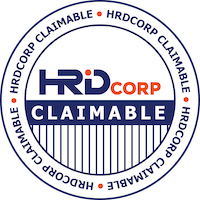Geometric Dimensioning and Tolerancing
Master Geometric Dimensioning and Tolerancing (GD&T) under expert guidance to elevate your engineering design skills. Our comprehensive training program is tailored specifically for this course to provide you with an in-depth understanding of GD&T principles. Enroll now to enhance your ability to define precise geometries for parts and assemblies.
- Available in:
- Malaysia

Corporate Pricing
Pax:
Training Provider Pricing
Pax:
Features
Classification
Industry Specific Course
- Tailored to specific industry needs
- Focuses on specialized tools and techniques
- Ensures alignment with current and future standards
- Provides targeted, practical training
- Verified by industry experts
Subsidies

What you'll learn
- Understand the limitations of coordinate tolerancing compared to GD&T.
- Implement Rule #1 and Rule #2 in modifying designs.
- Identify and interpret GD&T symbols according to the latest standards.
- Analyze cost-benefit scenarios of various GD&T setups.
- Apply fundamental dimensioning concepts including feature control frames.
- Measure form errors using appropriate tooling techniques.
- Establish datum reference frames on sample parts.
Why should you attend?
Geometric Dimensioning and Tolerancing (GD&T) is a critical aspect of modern engineering design, providing a comprehensive framework for defining the geometry of parts and assemblies. This course begins by exploring the limitations of traditional coordinate tolerancing methods and highlights the advantages that GD&T offers over conventional dimensioning techniques. Through hands-on exercises, participants will gain practical experience in analyzing engineering drawings using both methods, fostering a deeper understanding of GD&T's superiority. The course delves into the latest GD&T standards and symbols, ensuring that learners are well-versed in the most recent revisions and governing bodies. Participants will engage in exercises to identify and interpret these symbols on provided drawings, solidifying their comprehension. Fundamental concepts such as basic, critical, and reference dimensions are covered extensively, along with feature control frame usage and the virtual condition concept. As the course progresses, learners explore form controls like flatness, straightness, circularity, and cylindricity. They will understand their implications on design and production through practical measurement exercises. The significance of Rule #1 and Rule #2 is explained alongside bonus tolerance applications and worst-case boundary analysis. Further topics include datums and datum reference frames, orientation and profile controls, location and runout controls, composite tolerancing techniques, modifiers' effects on tolerance zones, and surface quality considerations. Practical activities based on real-world case studies ensure that participants can apply GD&T principles effectively in various production scenarios.
Course Syllabus
Day 1 - GD&T Fundamentals and Controls
Short Break
15 minsShort Break
15 minsRecap and Q&A
15 minsLunch
1 hourShort Break
15 minsShort Break
15 minsShort Break
15 minsRecap and Q&A
15 minsEnd of Day 1
Day 2 - Advanced Applications and Standards
Short Break
15 minsShort Break
15 minsRecap and Q&A
15 minsLunch
1 hourShort Break
15 minsShort Break
15 minsShort Break
15 minsRecap and Q&A
15 minsEnd of Day 2
Ratings and Reviews
Instructor
Tasmeea Rahman is a highly skilled and versatile professional with a rich background in both academia and industry. Currently serving as a Freelance Corporate Trainer at Abundent in Kuala Lumpur, Malaysia, Tasmeea specializes in developing content and providing training on a wide array of subjects including Machine Learning, Data Analysis with Python, MS Excel, Power BI, Minitab, Jaspersoft, Apache Superset, TIBCO Spotfire, and various electrical and mechanical 2D/3D design tools such as AutoCAD and Autodesk Fusion 360. Her role also encompasses project management training. Previously, Tasmeea worked as an Adjunct Lecturer at Leading University in Sylhet, Bangladesh where she was involved in curriculum development and delivering engaging lectures on electrical and electronics courses. She has hands-on experience in teaching subjects like electrical circuits, VLSI design, digital signal processing, and microprocessors. Before her academic stint, she served as a Design Engineer at ALCOVE in Dhaka, Bangladesh where she was responsible for providing electrical and architectural drawings along with planning and executing projects. Tasmeea holds a Ph.D. in Project Management from Universiti Putra Malaysia with a perfect CGPA of 4.00/4.00. She also earned a Master of Engineering Management from the same university and an MBA in Marketing from the University of Dhaka. Her educational foundation is built on a Bachelor's Degree in Electrical and Electronics Engineering from United International University in Bangladesh. In addition to her formal education, Tasmeea has several certifications including Train the Trainer Certification from HRD Corp and Agile Project Management Certifications from Google via Coursera. She is proficient in multiple engineering software tools and programming languages including MATLAB, AutoCAD, C++, Assembly language, and Python. Fluent in both Bengali and English, Tasmeea is committed to continuous learning and professional development.
Instructor
Habil Hadi Mohammed is a highly skilled Mechanical Engineer with a robust academic and professional background, currently pursuing a PhD in Biomedical Engineering at Universiti Putra Malaysia (UPM). His research focuses on 'Additive Manufacturing,' supported by UPM funding. Prior to his doctoral studies, he completed a Master's degree in Manufacturing Systems Engineering from the same university, where he excelled with a CGPA of 3.81/4. His dissertation explored the innovative use of single-mode fibre lasers for surface polishing of FDM printed parts. Habil's academic journey began with a Bachelor's degree in Mechanical Engineering from Salahaddin University-Hawler, Erbil, where he developed an internal ballistics model for artillery gun projectiles. In addition to his academic pursuits, Habil has accumulated significant industry experience. As of January 2024, he serves as a Developer Engineer for an international company based in Switzerland. In this role, he designs and develops machines using both 3D printing and conventional manufacturing techniques such as milling and turning. He successfully built and tested prototypes using self-built 3D printers and collaborates with Micro Precision Manufacturing (MPM) to support full-scale production processes. Since 2021, Habil has also been contributing as a Research Fellow at UPM's Faculty of Engineering. His work includes software development for multi-material Functionally Graded Material (FGM) 3D printers and designing automated sports equipment in collaboration with the Department of Sport Studies. He is actively involved in developing hydroponic plant systems and object-specific 3D printers for industry partners. Before his current roles, Habil gained managerial experience as an Area Manager at COZMO Market in Sulaymaniyah from 2016 to 2018, where he oversaw multiple departments and significantly increased sales through strategic planning. He also worked as a Sales Representative for BIODERMA during this period, achieving notable sales success. Habil's technical skills are complemented by various certifications in data management, visualization, programming languages like Python and C/C++, and design tools such as AutoCAD and Fusion360. His participation in numerous webinars and conferences highlights his commitment to continuous learning and staying abreast of emerging technologies. Fluent in Kurdish, Arabic, and English, Habil is well-equipped to engage with diverse teams across global platforms.
Minimum Qualification
Target Audience
Methodologies
Instructor Reviews
Tasmeea was an excellent teacher. Very pleasant, willing to assist and answer concerns, and continuously asked how she could assist more. She made the course enjoyable as well as informative.
Thank you so much for your invaluable guidance. I really enjoyed it and appreciated how much fun you made it! I feel much more equipped to cope with difficult challenges.
The training was both fascinating and beneficial. Many members of the staff commented on how useful it was. Tasmeea delivers the topic with authority, wit, and passion.
FAQs
- Public pricing: applies for individuals signing up from different companies.
- Corporate pricing: applies if a company wants to have an intake for its employees only.
- Training provider pricing: applies only for other training providers looking to hire our trainers and use our content. Our content has a licensing fee.
We will keep you updated on the status of the intake after you enroll.
Courses you may like
Why should you attend?
Geometric Dimensioning and Tolerancing (GD&T) is a critical aspect of modern engineering design, providing a comprehensive framework for defining the geometry of parts and assemblies. This course begins by exploring the limitations of traditional coordinate tolerancing methods and highlights the advantages that GD&T offers over conventional dimensioning techniques. Through hands-on exercises, participants will gain practical experience in analyzing engineering drawings using both methods, fostering a deeper understanding of GD&T's superiority. The course delves into the latest GD&T standards and symbols, ensuring that learners are well-versed in the most recent revisions and governing bodies. Participants will engage in exercises to identify and interpret these symbols on provided drawings, solidifying their comprehension. Fundamental concepts such as basic, critical, and reference dimensions are covered extensively, along with feature control frame usage and the virtual condition concept. As the course progresses, learners explore form controls like flatness, straightness, circularity, and cylindricity. They will understand their implications on design and production through practical measurement exercises. The significance of Rule #1 and Rule #2 is explained alongside bonus tolerance applications and worst-case boundary analysis. Further topics include datums and datum reference frames, orientation and profile controls, location and runout controls, composite tolerancing techniques, modifiers' effects on tolerance zones, and surface quality considerations. Practical activities based on real-world case studies ensure that participants can apply GD&T principles effectively in various production scenarios.
What you'll learn
- Understand the limitations of coordinate tolerancing compared to GD&T.
- Implement Rule #1 and Rule #2 in modifying designs.
- Identify and interpret GD&T symbols according to the latest standards.
- Analyze cost-benefit scenarios of various GD&T setups.
- Apply fundamental dimensioning concepts including feature control frames.
- Measure form errors using appropriate tooling techniques.
- Establish datum reference frames on sample parts.
Course Syllabus
Day 1 - GD&T Fundamentals and Controls
Short Break
15 minsShort Break
15 minsRecap and Q&A
15 minsLunch
1 hourShort Break
15 minsShort Break
15 minsShort Break
15 minsRecap and Q&A
15 minsEnd of Day 1
Day 2 - Advanced Applications and Standards
Short Break
15 minsShort Break
15 minsRecap and Q&A
15 minsLunch
1 hourShort Break
15 minsShort Break
15 minsShort Break
15 minsRecap and Q&A
15 minsEnd of Day 2
Instructor Reviews
Tasmeea was an excellent teacher. Very pleasant, willing to assist and answer concerns, and continuously asked how she could assist more. She made the course enjoyable as well as informative.
Thank you so much for your invaluable guidance. I really enjoyed it and appreciated how much fun you made it! I feel much more equipped to cope with difficult challenges.
The training was both fascinating and beneficial. Many members of the staff commented on how useful it was. Tasmeea delivers the topic with authority, wit, and passion.
Corporate Pricing
Pax:
Training Provider Pricing
Pax:
Features
Classification
Industry Specific Course
- Tailored to specific industry needs
- Focuses on specialized tools and techniques
- Ensures alignment with current and future standards
- Provides targeted, practical training
- Verified by industry experts
Subsidies

Ratings and Reviews
Instructors
Tasmeea Rahman is a highly skilled and versatile professional with a rich background in both academia and industry. Currently serving as a Freelance Corporate Trainer at Abundent in Kuala Lumpur, Malaysia, Tasmeea specializes in developing content and providing training on a wide array of subjects including Machine Learning, Data Analysis with Python, MS Excel, Power BI, Minitab, Jaspersoft, Apache Superset, TIBCO Spotfire, and various electrical and mechanical 2D/3D design tools such as AutoCAD and Autodesk Fusion 360. Her role also encompasses project management training. Previously, Tasmeea worked as an Adjunct Lecturer at Leading University in Sylhet, Bangladesh where she was involved in curriculum development and delivering engaging lectures on electrical and electronics courses. She has hands-on experience in teaching subjects like electrical circuits, VLSI design, digital signal processing, and microprocessors. Before her academic stint, she served as a Design Engineer at ALCOVE in Dhaka, Bangladesh where she was responsible for providing electrical and architectural drawings along with planning and executing projects. Tasmeea holds a Ph.D. in Project Management from Universiti Putra Malaysia with a perfect CGPA of 4.00/4.00. She also earned a Master of Engineering Management from the same university and an MBA in Marketing from the University of Dhaka. Her educational foundation is built on a Bachelor's Degree in Electrical and Electronics Engineering from United International University in Bangladesh. In addition to her formal education, Tasmeea has several certifications including Train the Trainer Certification from HRD Corp and Agile Project Management Certifications from Google via Coursera. She is proficient in multiple engineering software tools and programming languages including MATLAB, AutoCAD, C++, Assembly language, and Python. Fluent in both Bengali and English, Tasmeea is committed to continuous learning and professional development.
Habil Hadi Mohammed is a highly skilled Mechanical Engineer with a robust academic and professional background, currently pursuing a PhD in Biomedical Engineering at Universiti Putra Malaysia (UPM). His research focuses on 'Additive Manufacturing,' supported by UPM funding. Prior to his doctoral studies, he completed a Master's degree in Manufacturing Systems Engineering from the same university, where he excelled with a CGPA of 3.81/4. His dissertation explored the innovative use of single-mode fibre lasers for surface polishing of FDM printed parts. Habil's academic journey began with a Bachelor's degree in Mechanical Engineering from Salahaddin University-Hawler, Erbil, where he developed an internal ballistics model for artillery gun projectiles. In addition to his academic pursuits, Habil has accumulated significant industry experience. As of January 2024, he serves as a Developer Engineer for an international company based in Switzerland. In this role, he designs and develops machines using both 3D printing and conventional manufacturing techniques such as milling and turning. He successfully built and tested prototypes using self-built 3D printers and collaborates with Micro Precision Manufacturing (MPM) to support full-scale production processes. Since 2021, Habil has also been contributing as a Research Fellow at UPM's Faculty of Engineering. His work includes software development for multi-material Functionally Graded Material (FGM) 3D printers and designing automated sports equipment in collaboration with the Department of Sport Studies. He is actively involved in developing hydroponic plant systems and object-specific 3D printers for industry partners. Before his current roles, Habil gained managerial experience as an Area Manager at COZMO Market in Sulaymaniyah from 2016 to 2018, where he oversaw multiple departments and significantly increased sales through strategic planning. He also worked as a Sales Representative for BIODERMA during this period, achieving notable sales success. Habil's technical skills are complemented by various certifications in data management, visualization, programming languages like Python and C/C++, and design tools such as AutoCAD and Fusion360. His participation in numerous webinars and conferences highlights his commitment to continuous learning and staying abreast of emerging technologies. Fluent in Kurdish, Arabic, and English, Habil is well-equipped to engage with diverse teams across global platforms.
Minimum Qualification
Target Audience
Methodologies
FAQs
- Public pricing: applies for individuals signing up from different companies.
- Corporate pricing: applies if a company wants to have an intake for its employees only.
- Training provider pricing: applies only for other training providers looking to hire our trainers and use our content. Our content has a licensing fee.
We will keep you updated on the status of the intake after you enroll.
Courses you may like
Our Offers

Become a Trainer
Teach what you love. Abundent Academy gives you the tools you need to run your own trainings! We provide you with the platform, the students, the materials, and the support you need to succeed!
- Higher trainer payouts
- Ready-made course materials
- Student management system
- AI digital marketing assistant

Academy for Business
Get unlimited access to all of Abundent Academy's carefully curated courses for your team, all organized according to job category and role! Perfect for companies looking to upskill their workforce and stay ahead in the tech industry.
- Carefully curated courses
- Role-based learning paths
- Team progress tracking
- Gap Identification and Analysis
Top companies choose Academy for Business







